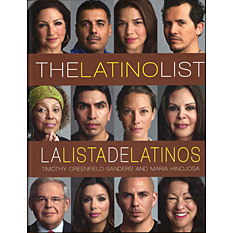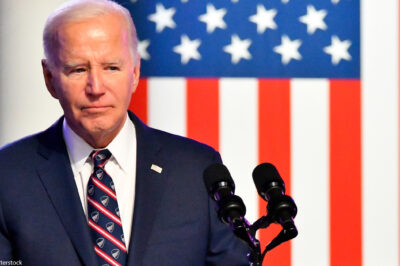
I recently had the opportunity to visit Florida, seeing my mother and other family members; we kicked back and talked as we hadn't had a chance to do for years.
One evening I got to thinking about one family member whom I wasn't able to see, a grandmother who has passed away and whom I still miss very much. Her life was very different from mine. Instead of college and a profession, she worked hard for many years on the Faberge factory line. My transition from elementary school in the Bronx to middle and high school in the New Jersey suburbs and eventually to Princeton University carried me into a world very different from the one where she lived. But when I would come home from school, she would say to me, "Antonio… sientate. Haz me un cuento" — "sit down, tell me a story." And it was by telling stories that my grandmother and I were able to communicate in a way that allowed us to understand and appreciate each others' lives.
Today, we live in a nation that sometimes seems like it's been divided into two separate worlds, each side unable to speak to or understand the other. This division is nurtured and accentuated by politicians on both sides and talking heads and bloggers who would rather wrap themselves in self-righteousness and scream than actually find solutions or common ground.
A number of politicians and on-air personalities have found that the immigration issue provides fertile ground; they sew intolerance to reap votes or cable viewers. The ACLU is fighting back with litigation and legislative advocacy, but also with true stories of today's immigrants, the same stories of struggle and hope that are passed down in so many families — stories that bring us together as a nation.
In 2007, I traveled to a Scranton, Pennsylvania, courtroom and listened to the story of Rosa and Jose Luis Lechuga — legal residents who came to the U.S. 20 years ago with the simple goal of raising their family and living free and prosperous lives. For years, the Lechugas ran a successful shop in Hazleton, Pennsylvania, selling mostly to recent immigrants and enabling them to carve out a piece of the American Dream.
But in 2006, Hazleton's City Council and then-Mayor Lou Barletta jumped on the xenophobia bandwagon by taking a modest increase in reported crime and turning it into a conflagration of lawlessness and gangs, blaming the so-called "problem" on illegal immigrants, and passing a law fining landlords who rented to illegal immigrants and denying business permits to companies that hired them. This law provoked acts of overt racism against the town's Latinos and encouraged more subtle discrimination against the documented and undocumented alike.
With police cars parked ostentatiously in front of their small store, and native-born residents beginning to, in Jose Luis's words, "look at [immigrants] as enemies," business slowed to a trickle and the Lechugas were forced to close their store and leave behind the town they once thought would be their retirement home.
The ACLU sued the town of Hazleton. In 2007, Hazleton's anti-immigrant law was ruled unconstitutional by a federal district court. The ruling was unanimously upheld by the 3rd Circuit Court of Appeals in 2010.
When the ACLU was founded, Attorney General Mitchell Palmer was having thousands of so-called "radicals" arrested and hundreds deported, without regard for constitutional protections. Today, we have S.B.1070, Arizona's controversial law which invites racial profiling by requiring the police to demand a person's "papers" based on some undefined "reasonable suspicion" that they are in the country illegally.
The ACLU, along with a coalition of civil rights groups, is challenging Arizona's "show me your papers" law on behalf of groups and individuals who, like ACLU plaintiff Jim Shee — a U.S.-born, 70-year-old American citizen of Spanish and Chinese descent — are harassed and fear arrest because they have foreign accents or brown skin. Even though the worst parts of the law were blocked in court, Shee has already been stopped twice by local police and ordered to produce his "papers."
The ACLU has no illusions about the racism and intolerance that still permeate this country. But we do know that most Americans don't want to live in a nation where racism drives honest shopkeepers out of town, or racial profiling by law enforcement is encouraged. When we talk about racism and immigration, we need to remind those who may disagree with us that we are talking about the same pursuit of the American Dream in which their immigrant forebears engaged — a nation that has no place for hate; that moves forward, together.
My belief in the importance of storytelling is one of the reasons why I was so delighted to participate in The Latino List, a documentary and multimedia initiative that debuts tonight on HBO at 8 p.m. I was proud to join such respected Latinos as Justice Sonia Sotomayor, Senator Bob Menendez and others to spotlight the contributions Latinos are making to contemporary American society. And I was humbled and honored to share my family's story and to discuss how our experience with discrimination and prejudice made me a firm believer in the power of civil liberties advocacy.
(Cross-posted to Huffington Post.)
Learn more about immigrants' rights: Sign up for breaking news alerts, follow us on Twitter, and like us on Facebook.


